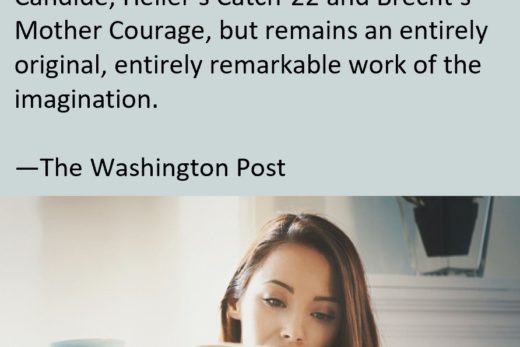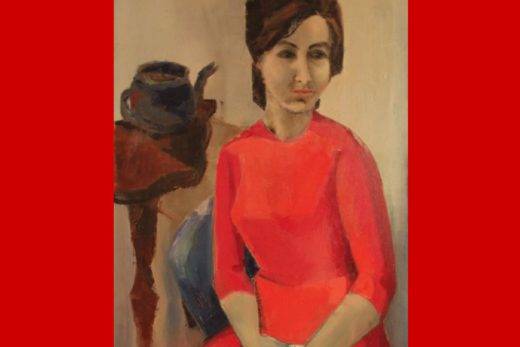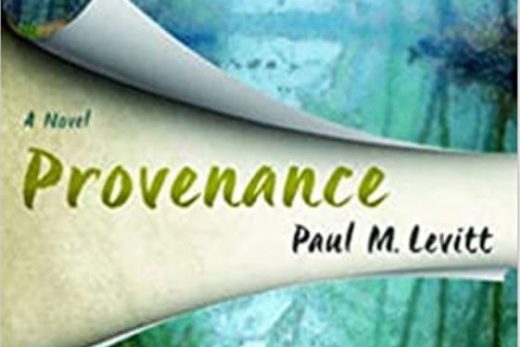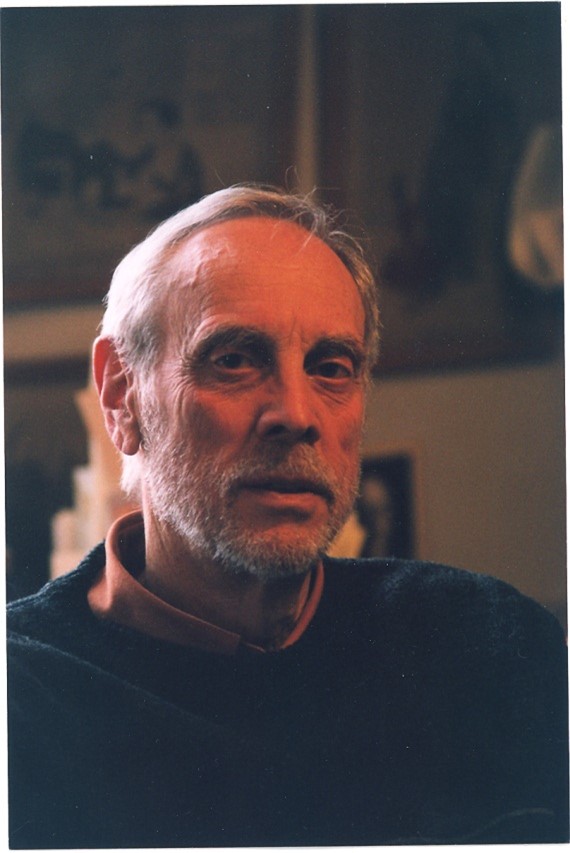
Paul Levitt earned a Ph.D. in English at UCLA and has taught at the University of Colorado since 1964, spending many summers in London writing plays for the BBC Radio. His great passion is writing historical fiction, which has enabled him to visit the Jazz Age (Chin Music), McCarthyism (Dark Matters), immigrants to America (Come with Me to Babylon), 12th-century England (The Saint-Makers), Soviet Russia (Stalin’s Barber), Nazi Germany (Yana), postwar Berlin (Berlin Revisited), and mid-century American upper-crust society (Rowing to Ithaca). A prolific author, Paul has published 13 novels, 17 plays, 7 children’s books, and numerous academic treatises.
I grew up in Newark, New Jersey, which at the time was a lovely garden suburb of New York City. We played stickball and touch football in the streets, basketball in a neighbor’s driveway, baseball (both hard and soft) in the school yard, and stoop ball with a pink Spalding. Our teachers, except for the man who taught gym classes, were all well-educated women. I never remember a child who couldn’t read, write, spell, and outline a sentence. When my family moved to Los Angeles, I was heartbroken to leave Newark and my friends behind. My mother was equally distressed; she cried copiously at the train station.
Los Angeles in 1948 was just experiencing a mass immigration from other states. When we saw a car on the highway with a New Jersey license plate we honked and waved; the people in the other car did as well. The sudden influx of people from all over America created tensions, especially racial and religious. I can remember ethnic fights that took place in junior high school, and I recall the overcrowded classrooms, where a great many students could barely read. The teachers were not nearly as good as those I had studied with in Newark. To keep myself occupied, I turned to reading plays from my sister’s theatre books and playing basketball. Although we were living in a duplex, my father gained the owner’s permission to put a backboard and basket on the garage. Shooting baskets became an important part of my life. By the time my parents bought a house in the San Fernando Valley (North Hollywood), I was ready to compete in high school, where I eventually won a few awards and a scholarship offer to play for UCLA. Instead I chose to attend the University of Colorado at Boulder, where I majored in philosophy and learned to ski. I found the powder snow more alluring that a sweaty basketball court.
As an undergraduate I enjoyed writing dialogue for my own pleasure, but never completed a play. That part of my life began when I had already become a tenured professor at the University of Colorado at Boulder. During a sabbatical in England, I wrote The Norwich Incident, a play that a London agent sold to BBC Radio. The sale of that play launched my playwriting career, which lasted until the budget for radio drama was radically cut. Wishing to continue both scholarly work and creative, I turned to fiction.
Part of my good fortune in finding a position with the English department in Boulder was my election to department chair. At the time, English was considered a service department and scholarship and creative work were actively discouraged. I changed the climate by reducing teaching loads and rewarding publication. To my surprise, I found administration to my liking, enough so that I continued with it after my two terms of chair had ended. For seventeen years I codirected the university’s academic writing program, which gave me a great deal of satisfaction.
My tenure in the writing program reinforced my commitment to clear and graceful prose. I trust that all my work, scholarly and creative, bear the mark of good writing. I am often asked why I write historical fiction. My answer applies to all my writing. When poring over a sentence, I am transported to another place. A chemical reaction in my brain effaces the world, leaving only the rhythms of my words and the fancies of my imagination.
Books
A Structural Approach to the Analysis of Drama. The Hague: Mouton, 1971.
J. M. Synge: A Bibliography of Published Criticism. Dublin: Irish University Press, 1974.
The Cancer Reference Book: Direct and Clear Answers to Everyone’s Questions. London and New York: Paddington Press, 1979. (Co-authored with Elissa S. Guralnick) This edition was reprinted in paperback in the United States by Delta Books, 1980.
The Cancer Reference Book: Direct and Clear Answers to Everyone’s Questions. Rev. ed. New York: Facts on File, 1983. (Coauthored with Elissa S. Guralnick)
The Cancer Reference Book: Direct and Clear Answers to Everyone’s Questions. London: Harper and Row, 1984. (Coauthored with Elissa S. Guralnick) A revised edition to reflect British medical practice.
The ABC’s of Farm Estate Planning. St. Louis, Missouri: Doane Agricultural Service, 1981. (Coauthored with Elissa S. Guralnick)
The ABC’s of Farm Estate Planning. 2nd ed. St. Louis, Missouri: Doane-Western, 1982. (Coauthored with Elissa S. Guralnick) The second edition reflects changes in the tax law.
You Can Make It Back: Coping with Serious Illness. New York: Facts on File, 1985. (Coauthored with Elissa S. Guralnick)
The Weighty Word Book (children’s book). Longmont, Colorado: Bookmakers Guild, 1986. (Coauthored with Douglas Burger and Elissa S. Guralnick)
The Weighty Word Book, revised edition. Niwot, CO: Roberts/Rinehart, October, 2000. (The revised edition has a competely new format and one new story.)
39 Forever: Living Long and Well (medical book). Longmont, Colorado: Bookmakers Guild, 1986. (Coauthored with Elissa S. Guralnick)
The Stolen Appaloosa and Other Indian Stories (children’s book). Longmont, CO: Bookmakers Guild, 1988. (With Elissa S. Guralnick)
Joe Frisco: Comic, Jazz Dancer, and Railbird. Carbondale: Southern Illinois University Press, 1999.
How Raven Found the Daylight (children’s book). Boulder, CO: University Press of Colorado, 2000.
The Weighty Word Book, revised edition. Boulder, CO: The Court Wayne Press, 2000.
Chin Music (novel). Lanham, MD: Roberts Rinehart Publishers: an imprint of Madison Books, 2001.
Vaudeville Humor. Carbondale: Southern Illinois University Press, 2002.
Dark Matters (novel). Albuquerque: University of New Mexico Press, 2004.
Bogus U. (novel). Las Cruces: Barbed Wire Publishing, 2006.
Come with Me to Babylon (novel). Albuquerque: University of New Mexico Press, 2008. [Named to Booklist’s Top Ten Historical Fiction, April 15, 2008; third-place winner for historical fiction, 2009, ForeWord Magazine; nominated for book of the year in historical fiction, Colorado Book Awards]
The Saint Makers (novel). Merrick, New York: Cross-Cultural Communications, 2008.
The Weighty Word Book, new and revised edition. Albuquerque: University of New Mexico Press, 2009.
Weighty Words, Too. Albuquerque: University of New Mexico Press, 2009. (Coauthored with Elissa S. Guralnick and Douglas A. Burger)
My Life in Vaudeville: The Autobiography of Ed Lowry, edited with an introduction by Paul Levitt. Carbondale: Southern Illinois University Press, 2011.
Raven Finds the Daylight and other American Indian Stories. Santa Fe: Clear Light Publishing, 2012. (Coauthored with Elissa S. Guralnick)
[A finalist for the New Mexico-Arizona Book Award under the category of multi-cultural]
2012 Moonbeam Childrens Book Awards Results
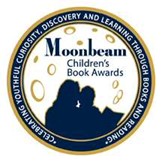
Multicultural Non-Fiction – Young Adult
Gold: Raven Finds the Daylight and other American Indian Stories, by Paul M. Levitt & Ellisa S. Guralnick; illustrated by Carolynn Roche (Clear Light Publishing)
Stalin’s Barber. Lanham, Maryland: Taylor Trade Publishing, 2012.
The Denouncer. Lanham, Maryland: Taylor Trade Publishing, 2014.
Dreams Bigger than the Night. Lanham, Maryland: Taylor Trade Publishing, 2015.
Provenance. Lanham, Maryland: Taylor Trade Publishing, 2016.
Yana. Merrick, New York: Cross-Cultural Communications, 2020.
Death at the Dacha: Stalin’s Last Movie. Lyons Press, a division of Rowman & Littlefield, 2020.
Berlin Revisited. Cross-Cultural Communications, 2021.
Major Play Productions
In the Aviary of My Heart, The Changing Scene, Denver, June 1974.
The Norwich Incident, BBC Radio, London, August 4 and 10, 1980.
In the Days of My Father, BBC Radio, London, January 23 and 25, 1982. (Nominated for the Giles Cooper Award for best play of the year)
Prisoners: A Play about Elizabeth Fry, BBC Radio, London, February 23 and 28, 1987; and February 27, 1988.
Ollie’s Odyssey, BBC Radio, London, March 1, 1989.
The Witch of Beacon Hill: A Play about Harry Houdini and Margery the Medium, BBC Radio, London, September 30 and October 2, 1989.
The Rough Draft, BBC Radio, London, October 24, 1989.
Le Brouillon, Radio Erie, Dublin, May 15, 1990.
The Mistress of Two Masters, University of Colorado, 1994.
Rehearsing Violetta, BBC Radio, London, April 13, 1994 and August 19, 1995.
